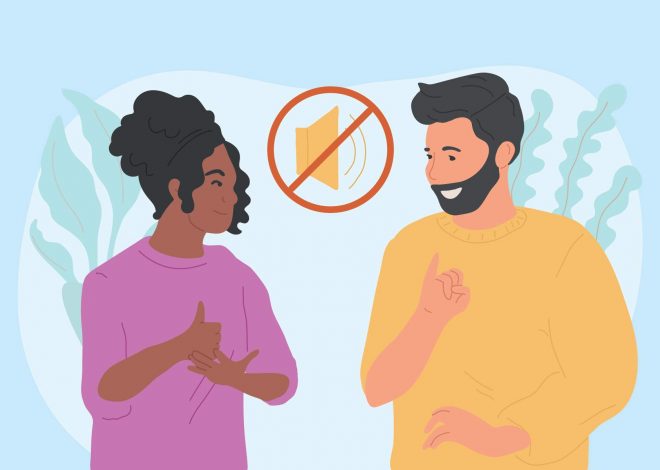
What’s Standing Quo Bias, and How Does it Have an effect on you
Have you ever ever questioned why you don’t like altering issues? Why do you favor making the identical decisions when somebody asks you to contemplate options? It occurs due to the established order cognitive bias, which doesn’t allow you to change and settle for change.
Certainly, altering and accepting change is tough. That is why individuals typically chorus from altering and are okay with doing or deciding on issues they’re conversant in.
Even when it means being caught, taking the lengthy path to work, consuming the identical meals each day, or assembly the identical individuals, they’re okay with it. For them, change = being uncomfortable. That is why they unwelcome change and love doing issues and residing of their consolation zone.
What’s Standing Quo Bias?
After conducting a managed experiment on a bunch of individuals, Richard Zeckhauser and William Samuelsonfound that reasonably than on the lookout for choices that may deliver change or progress, persons are extra comfy making choices that may preserve the present circumstances intact. This was when the time period established order bias was launched in 1988.
Established order bias makes people resistant to vary and impacts their decision-making talents. For them, altering means rising the possibilities of failure. Subsequently, even when their private progress is hampered, they are going to make acquainted decisions based mostly on their information. The possibilities of failure will probably be diminished when doing so, and so they don’t have to go away their consolation zone.
Nonetheless, when individuals begin to comply with this apply, they lose out on the potential advantages that outweigh the dangers concerned in altering. Subsequently, it’s important to grasp how established order bias is shaped and the way it influences decision-making and reduces our decisions.
How is Standing Quo Bias shaped?
Completely different rules are used to clarify the established order bias. This contains cognitive misperceptions and psychological commitments. Beneath are the widespread causes:
1. Loss aversion bias: Individuals with this bias primarily give attention to what they’ll lose reasonably than obtain. When given decisions, they focus extra on what they are going to be shedding by making these decisions. Therefore, they worry abandoning the established order, and reasonably than adapting to vary, they really feel okay staying in the identical place.
2. Mere Publicity Impact: Individuals typically discover it straightforward to work with issues they’re conversant in. That is the place the Mere Publicity Impact comes into play. Individuals cease altering as they really feel they are going to lose reference to acquainted issues.
3. Anticipated Remorse or Blame: Individuals typically worry that they won’t be preferred or blamed for breakups and conflicts as a result of they’ve modified. As a result of this, they keep away from the potential of fixing and select to stay as they’re. A typical instance is buyer conduct when prospects preserve a well-known services or products as a result of they assume altering would possibly hurt them.
4. Cognitive Dissonance: When confronted with inconsistent ideas, cognitive dissonance happens. It’s an uncomfortable feeling that most individuals don’t want to expertise, so they are going to do something doable to reduce it. Typically, they are going to keep away from ideas of change as a result of they make them uncomfortable and disturb their cognitive consistency.
Even when people see one possibility as extra invaluable than their chosen one, they are going to preserve following previous patterns, as going with one thing new will trigger cognitive dissonance. As the worth of two choices will battle, the person sticks with the established order to cut back the cognitive dissonance.
Rationality vs. Irrationality
Typically, even with established order bias, people make a rational alternative. For instance, when a person has to keep up the present scenario as a result of there will probably be a value concerned within the transition, and the achieve will probably be lower than the quantity invested, they select to remain. Nonetheless, when the person ignores the alternatives that may enhance the scenario and can give extra private progress or achieve, the irrational established order bias comes into play.
Impacts of the Standing Quo Bias
To some extent, established order bias helps preserve psychological assets free for different essential duties. Nonetheless, this simplified decision-making prevents progress as a result of as a substitute of constructing a alternative, the particular person is okay of their consolation zone. Following previous patterns means you miss out on alternatives and cognitive progress. Nonetheless, as established order bias impacts every particular person in a different way, some take note of it whereas others ignore it.
When a person stays in established order bias for an extended, it’s a signal that you’re not placing a lot effort into making choices. It’s useful as you don’t have to make use of your psychological assets in easy duties. Nonetheless, private progress pauses when it turns into the default option to course of issues.
1. Systemic results
Established order bias is, by and enormous, a scientific problem. People’ norms are based mostly on a system and are accepted in a structural type. Nobody questions them.
In most firms, individuals work 5 days every week, Monday by Friday. Nonetheless, current research present productiveness will increase when individuals work 4 days every week. However when individuals had been requested to work for 4 days as a substitute of 5, they weren’t prepared to vary. Corporations resisted this modification as they wished the workers to maintain coming for 5 days.
In some circumstances, when firms tried adopting this modification, workers didn’t agree. This exhibits that individuals hesitate to regulate to the brand new modifications even when there’s a profit. Even when it means working extra and fewer on manufacturing, they’re okay as they wish to problem the present hierarchy and established norms.
2. Monetary
When individuals fail to earn extra, they query why they can not. Established order bias is the reply. As individuals fail to vary and make the most of the funding and saving alternatives, they find yourself caught. What they do is reasonably than make investments the cash in some new issues, they spend money on safe funds the place they don’t should take the danger, which impacts their funds.
How one can Deal With Standing Quo Bias?
To beat and cope with this established order bias, you have to perceive the world round you, the norms construction, and the correct guidelines and rules. Once you perceive them, navigating life turns into straightforward. If the identical factor goes on and on with none change, the motivation stage decreases, and even the particular person will get caught. Subsequently, to beat established order bias –
- Problem your self. It’s straightforward to decide on a longtime norm, however you develop personally while you take the danger reasonably than sticking with what you could have been doing.
- Be prepared to vary.
- Maintain your self motivated as a result of with out that, you’ll not change, nor will there be any innovation.
- Take cost of your life and make choices.
- Cease fearing change and breaking the chains set by norms.
- Check the water even when it feels scary. Nothing incorrect will occur. You’ll be taught one thing new.
- Concentrate on the professionals and cons of change. Weigh all of the choices and perceive how change will have an effect on you. This may stop you from choosing the default possibility and put together your self for the change.
A phrase from CalmSage
Like different cognitive biases, established order bias has its benefits. It prevents individuals from using psychological assets unnecessarily and saves them from taking dangers, holding them protected. Nonetheless, when individuals begin to keep away from dangers resulting from being unvoiced, their psychological capabilities are negatively affected. Additionally, they’re prevented from rising personally.
Subsequently, earlier than you change into a follower, everytime you get a chance to vary, analyze it and take a look at the advantages. You may learn the way the change will have an effect on you after which consciously select.
You’ll know the best choice solely while you take step one. When you preserve following what is about, issues won’t ever change. Perceive what others wish to say, be open to vary, and have an open mindset. When you do it every part will fall into place.


